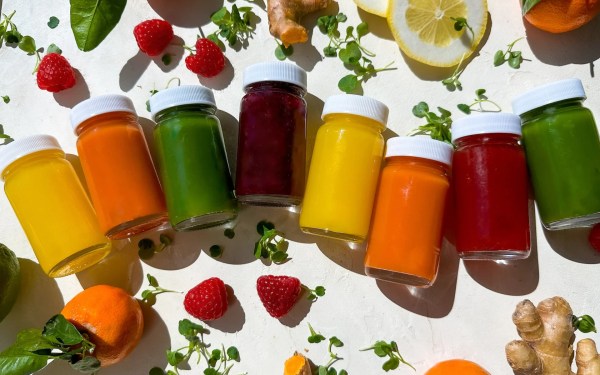5 Amazing Herbs To Reduce Inflammation In No Time

Disclaimer
This post may contain affiliate links. I will make a small commission if you make a purchase through one of these links, at no extra cost to you. See full disclosure and disclaimer policy HERE.
There are many natural compounds found in certain herbs that have the potential to be anti-inflammatory. In this post, I will list the best herbs to reduce inflammation with the most evidence of their anti-inflammatory properties.
Table of Contents
Many herbal remedies have anti-inflammatory properties.
Inflammation is the body’s main defence mechanism against infection, injury, and other forms of damage.
However, the inflammation itself can be detrimental in some cases.
For example, many conditions can cause inflammation to remain elevated, leading to tissue damage.
There is a range of anti-inflammatory medications to help control inflammation in the body, but they often have side effects and may not always be effective.
In those cases, there are herbs to reduce inflammation, both effectively and safely, to take advantage of – here I will show you the best ones.
Don’t have time? Pin this post for later!

Herbs To Reduce Inflammation In No Time
Turmeric
It contains a chemical called curcumin, which is known to have anti-inflammatory properties.
Several studies have shown that turmeric can help reduce inflammation and discomfort in people with arthritis by limiting the production of molecules called cytokines, which cause inflammation.
Researchers continue to investigate how curcumin affects inflammation in a variety of other conditions, such as inflammatory bowel disease.
Curcumin has the strongest evidence base for its anti-inflammatory effects compared to other herbal remedies.

Ginger
Ginger, or Zingiber officinale, is a tropical plant that has always had a place in traditional medicine.
There is evidence showing that many of ginger’s constituents can limit the production of cytokines and the activity of cyclooxygenase enzymes, which promote inflammation.
Research has found that ginger’s anti-inflammatory properties could be helpful in treating various conditions, including arthritis and general pain.

Green Tea
Green tea comes from the leaves of Camellia sinensis.
Research has linked it to a variety of health benefits, including helping with weight loss.
Green tea also has anti-inflammatory properties that could underlie some of these specific health benefits.
There is evidence to suggest that a component of green tea might interrupt the processes that cause inflammation in arthritis.
Other studies have found that green tea may have a positive effect on inflammation in people with metabolic disorders such as insulin resistance and type 2 diabetes.

Thyme
Besides being a great immune system booster due to the high content of nutrients such as vitamin A, vitamin C, vitamin B6, Iron and Calcium, Thyme also has great anti-inflammatory properties and should be included in everyone’s diet.
Thyme can be brewed into a tea and used to season and garnish dishes, but it can also be applied topically onto bruises and cuts to speed up the healing.

White Willow Bark
Rich in Salicin, a chemical similar to aspirin, the white willow bark has anti-inflammatory effects and helps to relieve pain and ease the discomfort caused by some inflammatory conditions such as arthritis.
As it regulates the production of prostaglandins, it may also help to relieve menstrual cramps.

Final Thoughts
There is enough evidence to support the claim that these herbs have anti-inflammatory properties and can help people with inflammatory conditions.
Despite herbal remedies being generally safe, it is always important to consult a health practitioner before taking them with other types of medication as there might be side effects and complications from their interaction.
Did you like it? Pin this post for later!

FAQs
What is inflammation, and why is it a concern?
Inflammation is the body’s natural defence mechanism against injury, infection, or damage. However, chronic inflammation can cause tissue damage and lead to conditions such as arthritis, heart disease, or autoimmune disorders. Managing inflammation is important to prevent these negative effects.
What are the benefits of using herbs for inflammation?
Herbs like turmeric, ginger, green tea, thyme, and white willow bark have anti-inflammatory properties. They can reduce inflammation naturally and offer fewer side effects compared to conventional medications, though consulting a healthcare provider is recommended.
Are there any side effects to using these herbs for inflammation?
While these herbs are generally considered safe, they can interact with medications or cause side effects. It’s important to consult a healthcare professional before using herbal remedies, especially if you’re taking other medications.
Can these herbs be taken alongside conventional anti-inflammatory medications?
Some herbs may interact with prescription medications, which could lead to complications or reduce their effectiveness. It’s always recommended to consult your doctor before combining herbal remedies with other treatments.
Can I use these herbs for long-term management of inflammation?
Many people use these herbs as part of a long-term strategy to manage inflammation. However, prolonged use should be monitored by a healthcare professional to ensure there are no adverse effects or interactions with other treatments.
Is it safe to use these herbs during pregnancy or breastfeeding?
Certain herbs may not be safe during pregnancy or breastfeeding. It’s best to consult with a healthcare provider before using any herbal remedies in these cases.
Have I missed something? Let me know on Twitter!
One thought on “5 Amazing Herbs To Reduce Inflammation In No Time”
Leave a Reply
You must be logged in to post a comment.







Thanks for sharing. I read many of your blog posts, cool, your blog is very good. https://www.binance.com/tr/join?ref=T7KCZASX